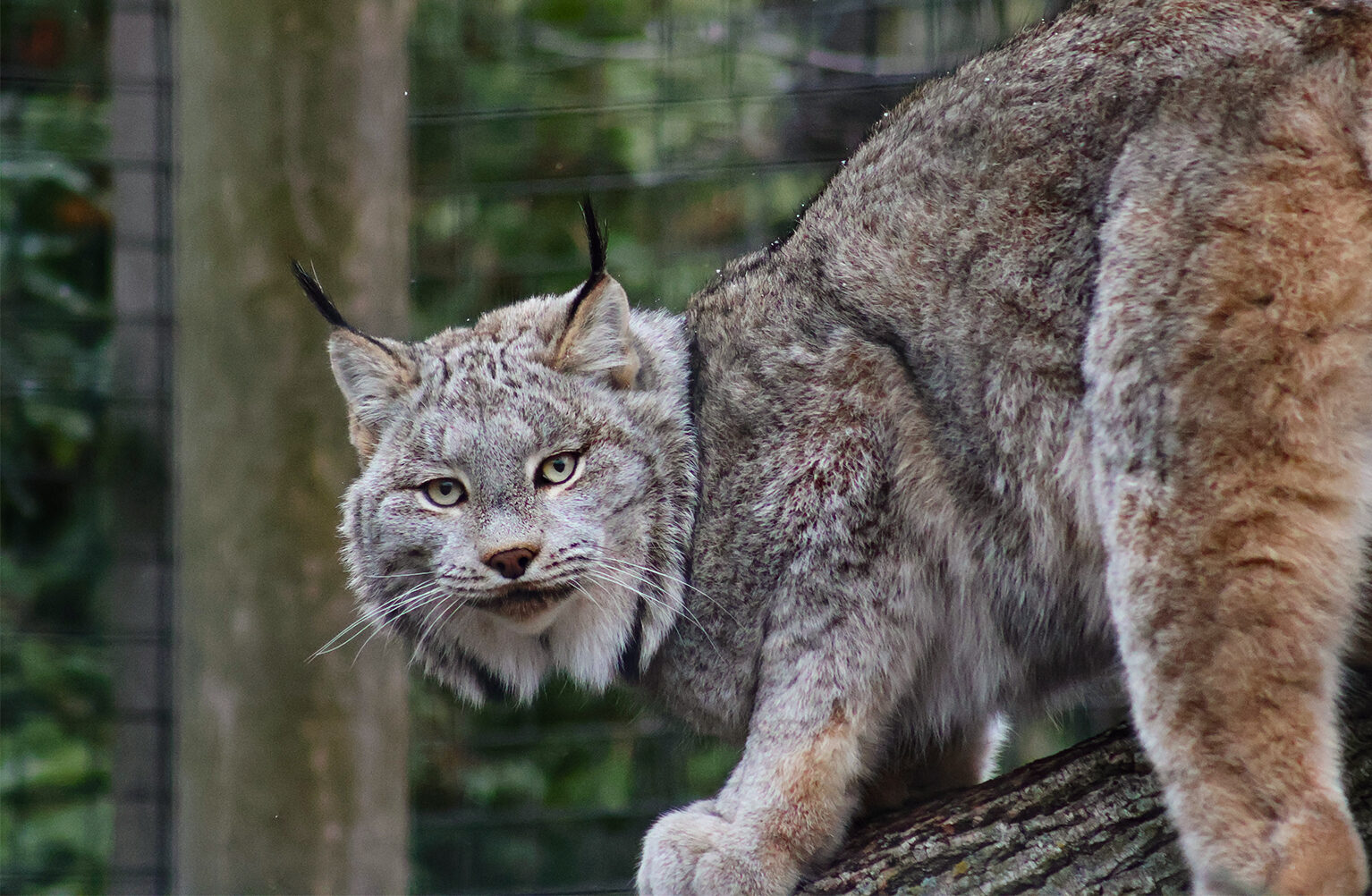From their thick winter coats to their long legs and snowshoe-like paws that help them travel through the snow quickly and easily, Canada lynx are well-adapted for life in cold climates.
HELPING THE CANADA LYNX IN THE WILD
The Canada lynx at the Fort Wayne Zoo are enrolled in the Species Survival Plan (SSP). SSP is a program implemented by the Association of Zoos and Aquariums (AZA) to help ensure a genetically viable population exists.

